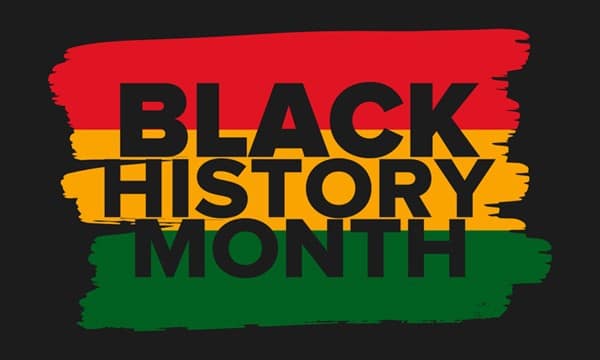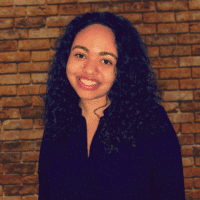History
Young impact makers attend Platinum Jubilee Award reception
8 December 2023
Newcastle volunteer tutor, Eliza Blowes, and Action Tutoring’s fundraising coordinator, Molly Cottrill were part of a special group of volunteers and charity representatives who attended the prestigious reception for Queen Elizabeth II’s Platinum Jubilee Award recipients. Her Royal Highness Princess Anne was the special guest of honour.
Eliza and Molly were chosen to represent the education charity at the reception last week Tuesday, which offered places for two change agents under age 25 and two staff from the organisation to attend. Founder and CEO, Susannah Hardyman and deputy CEO, Jen Fox, also attended the event at the Fishmongers’ Hall in London.
Action Tutoring received The Queen Elizabeth II Platinum Jubilee Volunteering Award, in recognition of the significant impact of its volunteer tutors on disadvantaged young pupils across England. This esteemed award, equivalent to an MBE, now known as the King’s Award for Voluntary Service, represents the highest acknowledgment bestowed on local voluntary groups in the UK. The aim is to celebrate fantastic work by national charities and their volunteers to empower young people and provide them with skills and opportunities.
Positive transformation
Eliza, a master’s student at Northumbria University, Newcastle, was chosen for being actively involved in providing additional academic support to disadvantaged young individuals within her local Newcastle communities. Since August 2022, Eliza has tutored primary and Secondary English, in-person and online, in 51 sessions across eight different programmes in local schools.
Expressing her passion for language and its transformative potential in diverse and disadvantaged communities, Eliza, who is studying for a postgraduate in Applied Linguistics for TESOL (Teaching English to Speakers of Other Languages), emphasised her interest in contributing to better outcomes for pupils in schools.
“Having personally witnessed the positive transformation we have brought about in pupils within my community, I am elated to see the organisation receiving this well-deserved recognition.”
Eliza
Relatively young charity
HRH Princess Anne spent time handing certificates and speaking to representatives of each awarded charity. HRH Princess Anne was particularly interested in the history and impact of Action Tutoring, as a relatively young charity, being awarded alongside established and centuries-old charities, including the British Red Cross and Scouts. With only 12 years since its founding, Action Tutoring said it was delighted to be among the recipients of the award which included renowned and household-name charities for this award.
Parliamentary Under Secretary of State for the Department for Culture, Media and Sport and also the Department for Business and Trade plus Minister for Equalities, Stuart Andrew, gave a speech and met with charities to appreciate their work.
Increasing life chances
Susannah Hardyman expressed pride in the volunteers’ selfless commitment to supporting disadvantaged young people, highlighting their positive impact on academic progress and the wellbeing of pupils.
“The recognition serves as a reminder of the invaluable contributions made by our volunteers within their local communities across the country. Like Eliza, they are not only helping disadvantaged pupils in academic progress but also fostering their sense of confidence and increasing their life’s chances.”
Susannah
Action Tutoring is proud of its diverse pool of volunteers from different backgrounds and between the ages of 18 to 82, including university students, full-time or part-time workers from different sectors of business, and retired professionals. Not only do volunteers help pupils achieve better grades, but they also serve as positive role models by creating a supportive environment for learning and mentoring pupils to thrive in school and later in life.
In the 2022-23 academic year alone, 1,744 volunteers supported 5,743 primary and secondary pupils in 25,600 sessions in 140 schools across the country. Volunteers are at the core of Action Tutoring’s work and remain an invaluable resource in driving our purpose and impact.
______
Become a volunteer tutor with Action Tutoring and help disadvantaged children improve their academic strength and build a better future. With just one hour a week, you can volunteer to tutor pupils in English or maths at primary or secondary level, online or in-person. No previous teaching experience is required and we will provide you with all the resources you need.
Celebrating Black History Month at Action Tutoring
16 October 2020

Action Tutoring Programme Coordinator for Birmingham, Grace Brooks, talks about her experience coming from a mixed heritage background and discusses with colleague Fleur Nicholson, about steps we can take to increase equality and diversity in the school curriculum, in Action Tutoring and in society more widely.
We are finally in October, and at Action Tutoring we’re highlighting the need for reflection and celebration of Black History Month.

As a mixed-race woman, Black History Month for me is about being seen, heard and valued. Although when doing so, we sometimes forget to include those with mixed heritage in this group. Unfortunately, we are all guilty of overlooking certain groups, even within our own community. That is not to say we should pay no attention to Black history, but to say that we should look at all Black history: those from African descent, those from the Caribbean descent, those from mixed descent etc. Black history is our history and mixed heritage history is our history – they are not separate.
Black history is our history and should not be separately taught within our schools nor should you need to wait until university before you can learn about British Black history. So many of us are left unaware of the astonishing impact and contributions of the Black community across our history and our culture, including in our literature.
This absence was highlighted by the recent TeachFirst report ‘Missing pages’, which calls for an increase to the representation of ethnic minority authors in English literature lessons. For example, currently the biggest exam board does not include a single book by a Black author in their English Literature GCSE specifications.
Why can’t we see and teach our children the powerful impact that people of colour have had on our society when everyone was against us? That would personally inspire me if I was a 13-year-old girl, not just the white British topics I was taught in class. It is crucial to tell the whole story from all perspectives and celebrate every achievement and contribution.
We often forget to look at and reflect on how much of an impact people of colour have had and continue to have on our society; we are almost forgotten. We need to provide platforms for Black people to speak up, be recognised and celebrated and be appreciated in our community, and education is one place this can start.
As part of #BlackHistoryMonth, we want to celebrate the inspirational American mathematician and aerospace engineer – Mary Jackson.
Mary is used as a case study in our English Workbook for Primary school pupils – find out more about her work here: https://t.co/ukRMHUSwaC pic.twitter.com/WvSZmrVYKs— Action Tutoring (@ActionTutoring) October 14, 2020
Enterprises like The Black Curriculum can help to address the lack of British history in our schools. So that all young people can be educated fully before reaching adulthood. This social enterprise delivers arts-focused Black history programmes to help equip young people, as well as providing teacher training and campaigning to change the curriculum.
We need to educate the younger generation by teaching an accessible curriculum for all, providing all children with a sense of identity and importance in our society. The work The Black Curriculum does, has the potential to inform and educate young people of colour on their own history, as well as their peers’.
The TeachFirst report includes perspectives from four English teachers on why representation matters and how they have introduced a greater diversity of authors in their own lessons. The paper also recommends other proactive measures that could help us progress, including changing the literature specifications for GCSE English, providing access to professional development for teachers and funding for schools to invest in books by ethnic minority authors.
We all need to recognise our privilege and ask ourselves what we will do to positively impact those around us. By acknowledging this you are accepting your responsibility and your potential to make a change. You must then decide on the actions you will take. These actions are not always big; they may be small, such as the way we speak to one another.
We need to ask ourselves: how can we personally take steps to increase equality and diversity? And not just for Black History Month but for every day of the year.
At Action Tutoring, we know we have a part to play in educating pupils. In the short term we are working to review all of our tutoring workbooks to audit their cultural representation and messaging. Any new resources we produce will follow new diversity criteria.
We are also creating diverse suggested reading lists for pupils. These will also be useful for tutors who may ask us about the kinds of texts they could bring to sessions for ‘reading for pleasure’ activities.
We are also establishing a Diversity and Inclusion working group internally to ensure we make sustained anti-racist action central to how we work.
As part of Black History Month, Action Tutoring is encouraging people to share inspiring stories of Black and mixed heritage figures on social media, to celebrate the outstanding contributions made by Black and mixed heritage communities throughout history. Please tag us in your posts on twitter @ActionTutoring and Instagram @actiontutoringuk.






